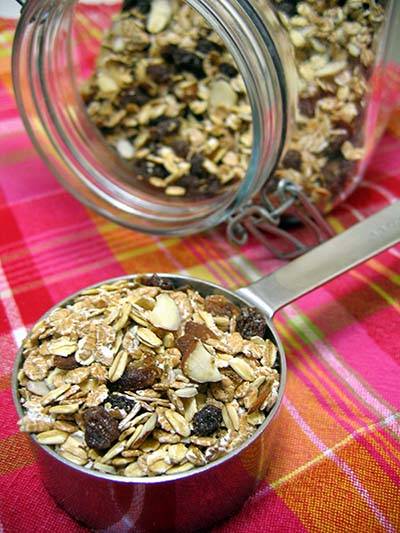 Cereal as we know it didn’t exist before 1894. Back then, Americans ate porridges like corn meal mush, corn and wheat versions of pancakes, toast, cornbread, meat, and fruit, when it was in season, for their morning sustenance. Only in the later 1800s were we growing enough oats for oatmeal to become common.
Cereal as we know it didn’t exist before 1894. Back then, Americans ate porridges like corn meal mush, corn and wheat versions of pancakes, toast, cornbread, meat, and fruit, when it was in season, for their morning sustenance. Only in the later 1800s were we growing enough oats for oatmeal to become common.
But that all changed when Dr. John Kellogg and his younger brother Will began making corn flakes. Dr. Kellogg believed that cold cereals were integral for encouraging a healthy colon and reducing sexual urges. (Yeah, there are probably several junior high and high school instructors who could cite cases to the contrary for the latter.)
Though he didn’t write articles and books admonishing “self abuse” and encouraging married couples to reduce their frequency like Kellogg, Swiss physician Dr. Maximlian Bircher-Benner did, like Kellogg, encourage his patients to eat diets rich in fruits and vegetables. He also began giving them a mixture of oats, dried, fruits, and nuts served with milk that he’d been served on a hike in the Alps.
To your colon, and according to the claims of food manufacturers like General Mills, Dr. Kellogg’s and Dr. Bircher-Benner’s breakfasts are the same. However, your pancreas knows the difference.
It doesn’t matter whether what you eat is made from whole grain flour or white flour. Foods made from flour raise your blood sugar. This is because the milling process increases the surface area of the grain. This bigger surface area makes it easier for your body’s enzymes to turn the starch into glucose than if the grains were left closer to their original form like rolled oats. Thus a bowl of cereal gives you a blood sugar spike and a bowl of muesli does not.
So when it comes to doing something about reversing the national trend of diabetes, a good place to start might be our cereal bowls. But don’t confuse muesli with granola. Some commercial granolas contain enough fat and sugar that you might be better off having a fast food sandwich. Quaker Natural Granola, Oats, Honey & Raisin packs 420 calories, 12 g fat (7 g of it saturated) and 30 g of sugar (over 7 teaspoons) per serving.
This recipe for homemade muesli weighs in at 165 calories per half cup serving, but you can adjust the amount of fat and sugar by adjusting the amount of almonds and dried fruit. Your kids don’t like raisins? Substitute craisins or dried mango. Want to get more Omega 3 fatty acids in your diet? Substitute a half cup of flax seeds or 2/3 of a cup of walnuts for the almonds. You can find all the ingredients for homemade muesli in the bulk foods department at Common Ground Food Coop in Urbana.
Homemade Muesli
- 4 1/2 c rolled wheat flakes
- 2.1/2 c rolled oat flakes
- 1 c sliced almonds
- 1 ¼ c raisins
- 6 T chopped dates
In a large bowl combine, wheat flakes, oat flakes, almonds, and raisins. Chop dates. Add to bowl. Toss to combine. Store in a lidded container. Makes 2 quarts.








